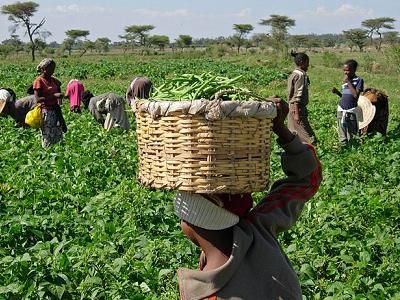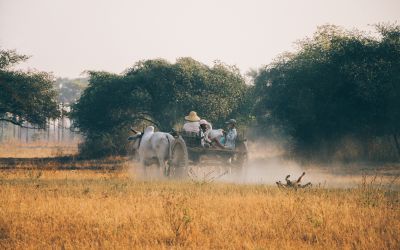FAO: agriculture to drive food security and sustainability in Africa
2014 African Year of Agriculture and Food Security can lead to increase in sustainable farming and food security

The head of the Food and Agriculture Organization of the UN (FAO) has said that the 2014 African Year of Agriculture and Food Security can act as a major step towards a food secure and sustainable Africa.
The African Year was launched during the African Union Summit last month in Addis Ababa, Ethiopia with the aim of providing a platform for governments to act on food security.
FAO leader, Jose Graziano da Silva, said: "The launch of the African Year of Agriculture and Food Security is an important step towards a hunger-free and sustainable Africa that the late South African leader Nelson Mandela and many others have dreamed of and fought for,".
He noted that the African Year will build on the efforts of the Comprehensive Africa Agriculture Development Programme launched in 2003.
"Some 75 per cent of Africans are 25 years old and under and the population is expected to remain largely rural for the next 35 years, with women heading up many households. Agriculture is the only sector of the economy capable of absorbing this workforce. There is no inclusive and sustainable way forward for Africa without women, youth and agriculture," the director-general said.
Improving access to financial services, training, mechanisation and technology can transform subsistence farmers into efficient producers.
"Through methods that increase production while preserving natural resources, family farming also provides a sustainable alternative to input-intensive technologies that have resulted in damage to soil quality, land, water and biodiversity," he added.
Graziano da Silva noted that several African countries have already reached the Millennium Development Goal (MDG) hunger target of reducing by half the proportion of undernourished people between 1990 and 2015. These countries include Algeria, Angola, Benin, Cameroon, Djibouti, Ghana, Malawi, Niger, Nigeria, Sao Tome and Principe, and Togo.
“But despite individual success stories, as a whole, Africa needs to step up its efforts: more than one out of every five of its citizens is still denied the right to food,” Mr. Graziano da Silva said at the African Union Summit.
Some 75 per cent of Africans are 25 years old or under, and the population is expected to remain largely rural for the next 35 years.
“Agriculture is the only sector of the economy capable of absorbing this workforce,” Mr. Graziano da Silva said. “There is no inclusive and sustainable way forward for Africa without women, youth and agriculture.”
The African Year will build on the efforts of the Comprehensive Africa Agriculture Development Programme (CAADP), launched in 2003, and is being observed in parallel with the UN’s International Year of Family Farming, also celebrated in 2014.


